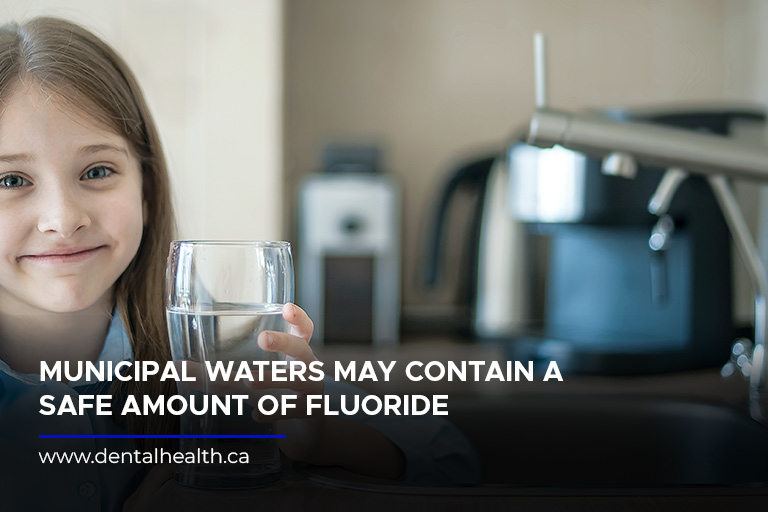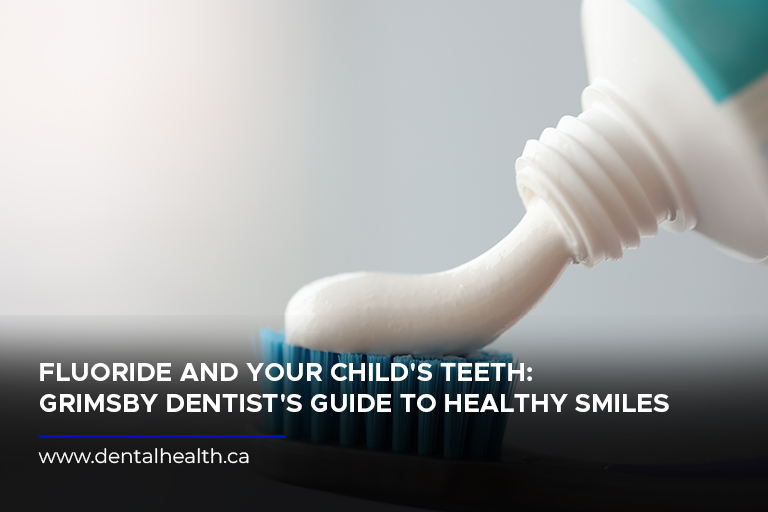Early habits and care are essential in setting the foundation for lifelong oral health. Ensuring children receive proper dental care helps them develop strong, healthy teeth that last a lifetime. Fluoride plays a crucial role in this process. It strengthens tooth enamel and fights tooth decay, contributing to healthier smiles for children.
Understanding how fluoride works and its benefits can help parents in Grimsby make informed decisions about their children’s dental care.
How Fluoride Works
Fluoride is a mineral that helps protect teeth from decay by making the enamel more resistant to acid attacks from bacteria and sugars in the mouth. The process involves several key mechanisms:
- Strengthening Enamel
Fluoride acts as a shield, constantly working to remineralize and fortify the tooth’s outer layer. This makes the enamel more robust and resistant to the acid attacks that lead to cavities.
- Reducing Acid Production
The bacteria in our mouths thrive on sugars and produce harmful acids that eat away at enamel. Fluoride disrupts this process, hindering acid production and creating a less hospitable environment for these cavity-causing culprits.
- Repairing Early Decay
Fluoride isn’t just about prevention but also about repair. It actively reverses the initial stages of tooth decay by helping redeposit lost minerals back into weakened enamel. This process, called remineralization, can stop a cavity in its tracks.
- Incorporation into Developing Teeth
As children’s permanent teeth form beneath the gums, fluoride becomes incorporated into their structure. This means their teeth emerge stronger and more resistant to decay.
- Antimicrobial Properties
Beyond its impact on enamel, fluoride also has the power to combat harmful bacteria. It creates a less welcoming environment for the microbes that cause cavities, gum disease, and bad breath, contributing to a healthier oral ecosystem.
Sources of Fluoride (What Grimsby Parents Need to Know)

Parents in Grimsby should be aware of various fluoride sources to ensure their children receive adequate protection for their teeth. Common sources include:
- Fluoridated Water
Grimsby, like many Canadian municipalities, adds a safe amount of fluoride to its water supply. This is an important and convenient source of fluoride, particularly for children who may not receive enough through other means.
- Fluoride Toothpaste
Use a rice grain-sized smear of fluoride toothpaste for babies with their first tooth, gradually increasing to a pea-sized amount once they reach three years old. This helps strengthen their enamel and protect against early decay.
- Fluoride Supplements
In cases where dietary fluoride intake is insufficient, your dentist or doctor might recommend fluoride supplements. These come in various forms and dosages, tailored to your child’s individual needs.
- Fluoride Mouth Rinse
Older children and teens can benefit from using a fluoride mouth rinse to further enhance their protection against cavities. This can be especially helpful if they are at higher risk of decay.
- Fluoride Treatments
During regular dental check-ups, your dentist can apply fluoride varnish or gel directly to your child’s teeth. These treatments provide a concentrated dose of fluoride, offering additional protection and aiding in the remineralization process.
Is Fluoride Safe for Children?
Yes, fluoride is safe and effective for children when used as directed. Health Canada and the Canadian Dental Association recommend fluoride as an essential tool for preventing tooth decay in children. The amount of fluoride in fluoridated water and toothpaste is carefully regulated to ensure safety.
Fluoride Safety

Ensuring the safe use of fluoride involves understanding the proper dosages and practices. Key safety tips include:
- Supervised Brushing
Parents should supervise their children’s brushing until around age 7 or 8 to ensure the correct amount of toothpaste is used, and it’s not swallowed. This supervision helps prevent accidental ingestion of excessive fluoride and promotes proper brushing techniques.
- Proper Toothpaste Amount
For children under 3, use a smear of fluoride toothpaste about the size of a grain of rice. For children over three, a pea-sized amount is sufficient.
- Regular Dental Visits
Regular dental check-ups are crucial for monitoring fluoride exposure and overall oral health. Dentists can assess your child’s individual needs and provide tailored advice on fluoride use and other preventive measures
- Educating Children
Teach children to spit out toothpaste instead of swallowing it. This simple habit significantly reduces the risk of ingesting too much fluoride, especially in younger children who may not have full control over their swallowing reflex.
- Monitoring Fluoride Sources
Be aware of all potential sources of fluoride in your child’s routine, including water, toothpaste, mouthwash, and professional treatments. Tracking these sources helps you ensure your child receives the right amount of fluoride and avoids overexposure.
- Communicating with Healthcare Providers
If you have any concerns about fluoride and its safety for your child, discuss them with your dentist or paediatrician. They can provide accurate information, address your concerns, and guide you on the best practices for your child’s oral health.
Dentist Tips for Healthy Smiles
- Regular Brushing
Children should brush their teeth twice a day using fluoride toothpaste and a soft-bristled brush, ensuring to reach all tooth surfaces and along the gumline for two minutes each time.
- Flossing Daily
Flossing is an essential part of daily oral care routine, as it effectively removes food debris and plaque from between teeth and below the gumline, areas where a toothbrush cannot reach.
- Balanced Diet
A balanced diet rich in fruits, vegetables, and whole grains, while limiting sugary and acidic foods and drinks, is vital for strong teeth and overall oral health.
- Hydration
Encourage your child to drink water regularly, as it helps wash away food particles and bacteria, neutralizes acids, and promotes saliva production, all of which contribute to a healthy mouth environment.
- Protective Gear for Sports
If your child participates in sports or activities with a risk of dental injury, ensure they wear a properly fitted mouthguard to protect their teeth and mouth.
- Regular Dental Check-ups
Regular dental check-ups, typically every six months, are essential for early detection of dental issues, professional cleaning, and personalized advice on maintaining optimal oral health.
- Positive Reinforcement
Encourage good oral hygiene habits by making brushing and flossing fun and rewarding. Positive reinforcement can help foster a lifelong commitment to oral health.
Protecting your child’s teeth with fluoride is a simple and effective way to set them up for a lifetime of healthy smiles. Remember, the habits you establish in the early years lay the groundwork for their future oral health. If you have any questions about fluoride or your child’s dental health, please don’t hesitate to contact our team at Kingsway Family Dentistry at (905) 563-4001. We’re here to help your family achieve optimal oral health!

